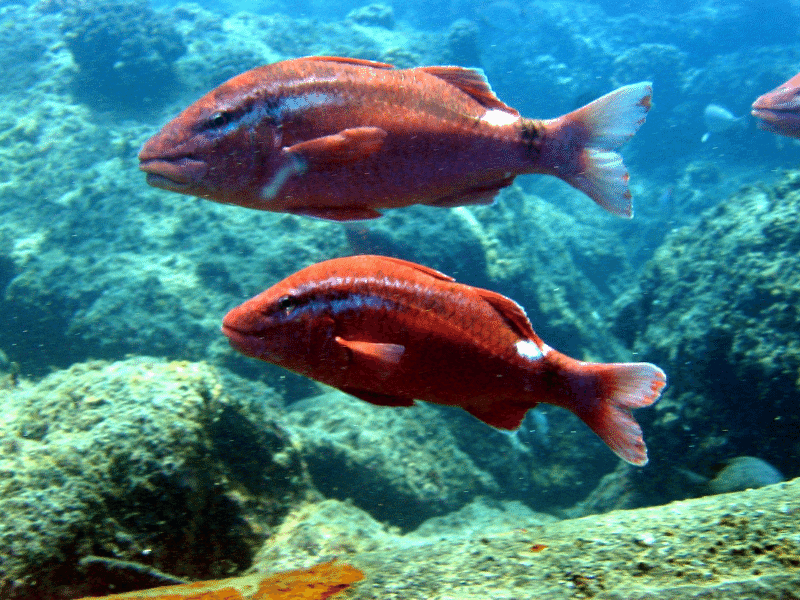OI of HPU Focuses on Rejuvenating Prized Hawaiian Fish

Oceanic Institute (OI) of HPU was recently awarded a nearly $300,000 grant from the National Oceanic and Atmospheric Administration’s (NOAA) Saltonstall-Kennedy Program for their innovative work to rejuvenate the Hawaiian goatfish in the nearshore waters off Hawai‘i’s coasts. The goatfish – known locally as kumu – is endemic to Hawai‘i and an esteemed food fish.
“Kumu is a highly regarded and culturally important reef species that has experienced significant population decreases over the past several decades,” said Chatham Callan, Ph.D., principal investigator of the grant titled, Engaging Hawaii's Fishing Community to Establish Marine Aquaculture Techniques for Kumu, an Endemic Hawaiian Goatfish (Parupeneus porphyreus). Callan’s research will focus on developing culture methods for marine fish species for local food production and to aid in marine conservation.
“This exciting project will utilize hatchery technology,” says Callan, “recently developed at OI to culture species such as yellow tang, to innovate culture methods for kumu. If successful, this research could pave the way for large scale production of kumu for fisheries restoration and commercial markets."
OI has a long and successful history of breakthroughs in aquaculture technology. After a series of successes in the feeding and nurturing of yellow tang in captivity, OI has enabled the production of the fish through aquaculture, which helps alleviate the stress of Hawai‘i’s reefs.
"Five years ago, we were producing dozens of yellow tang at a time," said Callan. "In a short period of five years, we have gone from dozens of yellow tang to thousands. It's really exciting, and we know we have to get to tens of thousands before we will become a viable alternative to the wild trade."
Kumu was once an abundant fish in Hawai‘i’s nearshore waters, but has fallen victim to overfishing in recent years. NOAA published a technical memorandum that classified kumu as an overfished species. The fish is highly prized in Hawai‘i and the flesh is considered a delicacy.
To learn more about OI at HPU click here.
Photograph courtesy Dr. Dwayne Meadows, NOAA/NMFS/OPR, Public domain, via Wikimedia Commons

